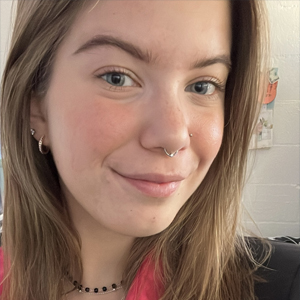In memoriam: William Weis
William “Bill” Weis, former chair of structural biology at Stanford Medicine, died Oct. 13 in Palo Alto, California. He was 64 and had glioblastoma.

Weis was born on June 10, 1959, in Queens, New York. In 1981, he received a bachelor’s degree in biochemical sciences from Princeton University. He earned a Ph.D. in biochemistry from Harvard University in 1987 and completed postdoctoral fellowships at Yale University and Columbia Medical Center. He accepted a faculty position at Stanford in 1993 and was appointed director of the graduate program of biophysics in 1999. He served as department chair of both photon sciences, in 2013, and structural biology, in 2014; he was also a professor of cellular physiology and held an endowed chair during his 30-year career at the university.
An article in the Stanford Medicine news center called Weis a “pioneer of molecular imaging” and he was noted for his expertise in X-ray crystallography; much of his work emphasized 3D structural composition of molecules in key regulatory pathways. His laboratory website highlights his interest in intercellular junctions and Wnt signaling, which has been shown to promote tumor metastasis through mutation of regulatory genes throughout the pathway. Weis’ work looked specifically at signaling processes involving Wnt/β-catenin, which under normal conditions is employed for embryogenesis and tissue homeostasis. Dysregulation in the
Wnt/β-catenin pathway can lead to health problems such as cancer and Type 2 diabetes. Weis’ recent notable publications also included topics such as 3D structural analysis of G-protein coupled receptors such as the β-2 adrenergic receptor, which is necessary for Wnt signaling.
Weis was a five-time recipient of Stanford’s outstanding preclinical teaching award, served on multiple journal editorial boards and was elected to the U.S. National Academy of Sciences in 2019. Additionally, he was a member of the American Society for Cell Biology, the American Crystallographic Society and other scientific associations. His involvement in the scientific community expanded knowledge of structural biology, and his discoveries remain foundational to the progression of preclinical research.
He is survived by his wife, Sharin Halfon, and two older brothers, Philip and Richard Weis.
Enjoy reading ASBMB Today?
Become a member to receive the print edition four times a year and the digital edition monthly.
Learn moreGet the latest from ASBMB Today
Enter your email address, and we’ll send you a weekly email with recent articles, interviews and more.
Latest in People
People highlights or most popular articles

Sketching, scribbling and scicomm
Graduate student Ari Paiz describes how her love of science and art blend to make her an effective science communicator.

Embrace your neurodivergence and flourish in college
This guide offers practical advice on setting yourself up for success — learn how to leverage campus resources, work with professors and embrace your strengths.

Survival tools for a neurodivergent brain in academia
Working in academia is hard, and being neurodivergent makes it harder. Here are a few tools that may help, from a Ph.D. student with ADHD.

Quieting the static: Building inclusive STEM classrooms
Christin Monroe, an assistant professor of chemistry at Landmark College, offers practical tips to help educators make their classrooms more accessible to neurodivergent scientists.

Hidden strengths of an autistic scientist
Navigating the world of scientific research as an autistic scientist comes with unique challenges —microaggressions, communication hurdles and the constant pressure to conform to social norms, postbaccalaureate student Taylor Stolberg writes.

Richard Silverman to speak at ASBMB 2025
Richard Silverman and Melissa Moore are the featured speakers at the ASBMB annual meeting to be held April 12-15 in Chicago.

